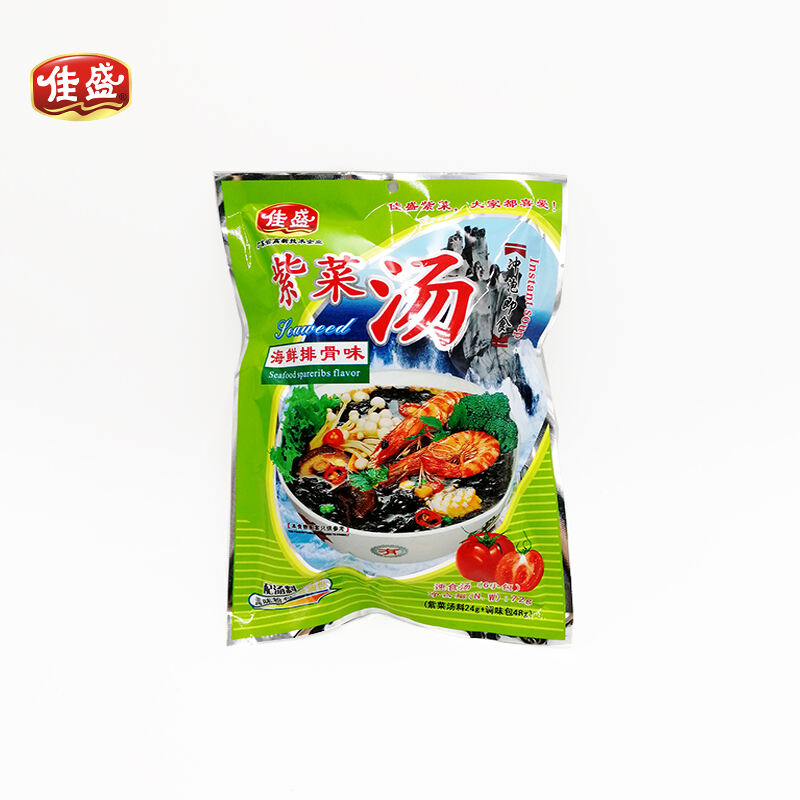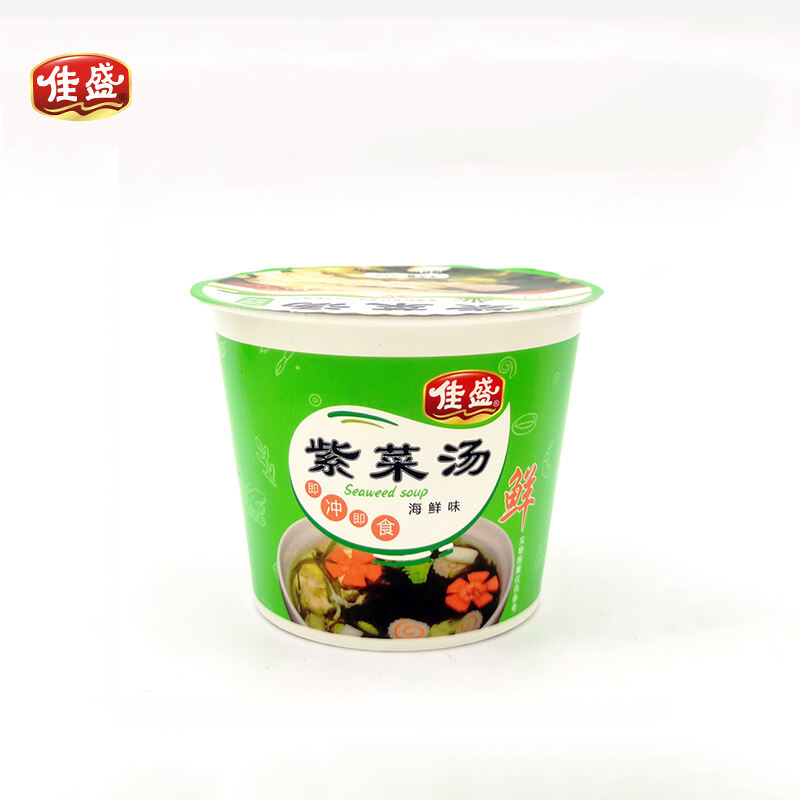Jun 13,2025
Kombu is a cornerstone in crafting hearty soup bases due to its richness in glutamate, which enhances the umami flavor in broths. It has a unique ability to intensify and deepen the taste profile of soups, making it a favorite among chefs worldwide. When simmered, Kombu releases essential minerals such as iodine and magnesium, adding health benefits while serving a nutrient-rich base for your soup. Another intriguing aspect of Kombu is its natural ability to soften other ingredients, thereby enhancing the depth and flavor of your dish. This quality not only improves the texture but also ensures a cohesive infusion of flavors. If you're eager to explore more, you can delve deeper into Kombu for soup.
Wakame adds a subtle sweetness and velvety texture to soups, enhancing both the flavor and mouthfeel. This green seaweed is packed with omega-3 fatty acids and a range of essential vitamins, providing not just flavor enrichment but a significant boost to the soup's nutritional profile. Its versatility allows it to be used in both hot and cold soups, making it a year-round favorite in a variety of culinary applications. Wakame's ability to adapt seamlessly into different dishes makes it an indispensable ingredient in both traditional and modern Asian soups. Discover more benefits of this green seaweed in Wakame soups.
Laver, commonly known as Nori, is a key ingredient in Chinese dried seaweed soups, contributing distinctive flavors and nutrients. It's frequently dried and pressed into sheets, making it easy to store and handle, thus adding convenience to meal preparation. Rich in antioxidants, Laver not only enhances the taste but also provides considerable health benefits, making it an essential component in traditional seaweed soup recipes. Its presence lends a unique taste that is characteristic of authentic Chinese culinary experiences. If you're interested in how Laver can infuse depth into your dishes, check out Nori for soup.
One of the standout features of seaweed is its rich iodine content, which is crucial for maintaining optimal thyroid function and metabolic health. Iodine plays a fundamental role in producing thyroid hormones, which regulate various metabolic processes in the body. In addition to iodine, seaweed is packed with vital minerals such as calcium, iron, and magnesium. These minerals are essential for bone health and energy production, contributing to overall wellness. Studies indicate that regular consumption of seaweed can significantly enhance nutritional status, particularly in communities with high seafood consumption, such as coastal populations.
Seaweed is celebrated for its high soluble fiber content, which aids digestion by promoting gut health and providing prebiotics that nurture beneficial gut bacteria. Moreover, the antioxidants present in seaweed, including vitamins A, C, and E, play a significant role in combating oxidative stress, thereby boosting the body's immunity. Incorporating seaweed into soups not only enriches their flavor but also supports a balanced diet crucial for heart health and effective weight management. The presence of these fibers and antioxidants underscores the health benefits of incorporating seaweed soup into regular meal planning, enhancing nutritional balance.
Rehydrating dried seaweed properly is crucial for enhancing its flavor and ensuring a delightful texture in your soups. Different types of seaweeds require specific rehydration techniques. For instance, Kombu can be soaked in cold water for several hours or boiled briefly to release its flavors effectively. Wakame, on the other hand, typically needs only about 10 minutes in warm water, resulting in a tender finish while retaining its nutritional benefits. Understanding the nuances of each type of seaweed not only enhances flavor extraction but also ensures the final texture of the seaweed in your soup hits the desired consistency. By mastering these techniques, you can elevate your soups with rich flavors and maintain the seaweed’s essential nutrients.
Achieving a well-balanced flavor profile in seaweed soups involves incorporating complementary savory ingredients. By adding elements like ginger, soy sauce, or sesame oil, you can enhance the natural umami taste of the seaweed, bringing a harmonious blend of flavors to your dish. Using a quality stock or broth as a base is paramount, as it integrates well with the seaweed’s savory richness. Additionally, cooking techniques such as simmering can deepen flavors, while lightly toasting ingredients like sesame seeds can intensify the overall aroma. These strategies collectively enhance the seaweed’s natural profile, making your soup not just a meal but an experience.
Finding time-saving solutions for family meals that don’t compromise on taste can be challenging. Instant Seaweed Soup Kits in 25g/72g sizes offer an easy way to prepare delicious seaweed soup quickly. These kits come with pre-portioned seaweed and additional seasoning packets, allowing you to whip up a nutritious meal effortlessly. They're perfect for introducing the whole family to the benefits of seaweed, packing authentic flavors into a convenient package. The nutritional benefits of seaweed, rich in vitamins and minerals, make these kits an excellent addition to busy days.

For those with a fast-paced lifestyle, the Instant Seaweed Soup Kit 13g offers a perfect on-the-go meal solution. Tailored for single servings, it provides a nutritious and flavorful soup in just minutes, requiring only the addition of hot water. This easy preparation makes it an ideal choice for lunch or a light dinner, especially when time is limited. Its compact size makes it incredibly convenient to carry, whether you're traveling or enjoying outdoor activities, ensuring you don't compromise on nutrition, no matter where you are.

Miyeok Guk is a traditional Korean seaweed soup deeply embedded in cultural practices, notably served on birthdays to symbolize health and growth. This custom reflects the soup's rich nutritional value, making it an ideal dish for celebrating personal milestones. Its importance extends beyond birthdays; postpartum women are encouraged to consume Miyeok Guk for its nutrients, aiding recovery after childbirth. This soup, traditionally made with seaweed known as "miyeok," is celebrated as a Korean comfort food, cherished for its taste and health benefits associated with the numerous nutrients found in seaweeds, such as iodine and omega-3 fatty acids, as highlighted in multiple studies.
In Chinese culture, seaweed soup is a culinary symbol of prosperity, especially during Chinese New Year. The name 'fa cai,' which translates to wealth, adds a layer of significance to this dish. Families often prepare seaweed soup during celebrations, sharing it with loved ones to foster an environment of abundance and good fortune. Seaweed's versatility in festive recipes underscores its pivotal role in traditional Chinese cuisine. This practice not only highlights seaweed's symbolic meanings but also showcases its culinary adaptability, reinforcing its status within Chinese cultural traditions and recipes.